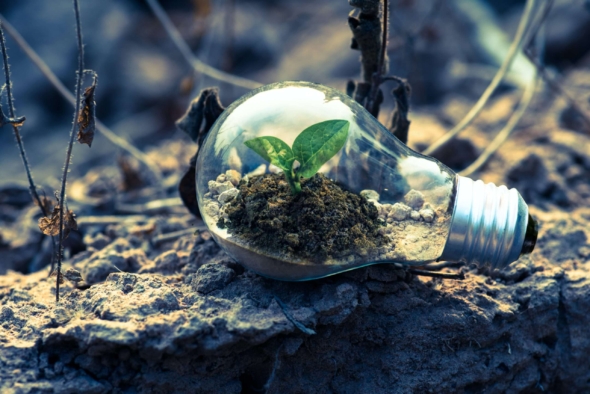In the fast-paced world we inhabit, the health of our planet is increasingly under threat. Environmental science, a multidisciplinary field, plays a crucial role in understanding the intricate web of interactions that sustain life on Earth. Within this realm, pollution research takes center stage as scientists delve into the causes, effects, and potential solutions to the growing menace of environmental pollution. This blog aims to unravel the layers of environmental science and pollution research, shedding light on the complex issues that demand our attention and action.
Understanding Environmental Science:
Environmental science is the systematic study of the environment and its interrelationships with living organisms. It encompasses a broad range of scientific disciplines, including biology, chemistry, physics, ecology, geology, and climatology. The goal of environmental science is to understand how natural systems function and how human activities impact these systems.
One key aspect of environmental science is the study of ecosystems—complex networks of living organisms and their physical environments. Ecosystems can provide essential services such as cleaning air and water, pollination of crops, and climate regulation. However, these services are under constant threat due to human activities.
Types of Pollution:
Pollution, the introduction of contaminants into the environment, is a pressing global issue that poses significant threats to ecosystems and human health. Understanding the different types of pollution is essential in addressing and mitigating their impact. The main categories of pollution include:

Air Pollution:
- Common pollutants: Particulate matter, nitrogen oxides, sulfur dioxide, carbon monoxide, and volatile organic compounds.
- Sources: Industrial emissions, vehicle exhaust, agricultural practices, and burning of fossil fuels.
- Impact: Respiratory diseases, climate change, and damage to ecosystems.
Water Pollution:
- Common contaminants: Heavy metals, pesticides, fertilizers, sewage, and plastic waste.
- Sources: Industrial discharges, agricultural runoff, improper waste disposal, and oil spills.
- Impact: Contaminated drinking water, loss of biodiversity, and disruption of aquatic ecosystems.
Soil Pollution:
- Common pollutants: Pesticides, heavy metals, industrial chemicals, and solid waste.
- Sources: Agricultural practices, improper waste disposal, and industrial activities.
- Impact: Reduced soil fertility, compromised food safety, and harm to terrestrial ecosystems.
Noise Pollution:
- Common sources: Traffic, industrial machinery, construction activities, and loud recreational events.
- Impact: Hearing loss, stress, and disruption of wildlife behavior.
Light Pollution:
- Common sources: Artificial lighting from streetlights, buildings, and electronic devices.
- Impact: Disruption of natural light-dark cycles, affecting wildlife behavior and human circadian rhythms.
Pollution Research:
Scientists and researchers around the world are actively engaged in pollution research to understand the complexities of environmental degradation and develop effective solutions. The key areas of focus in pollution research include:

Monitoring and Assessment:
- Utilizing advanced technologies to monitor pollution levels and assess their impact on ecosystems and human health.
- Developing standardized methodologies for collecting and analyzing environmental data.
Source Identification:
- Investigating the sources of pollution through source tracking and fingerprinting techniques.
- Identifying specific industries, activities, or regions contributing significantly to pollution.
Health Impacts:
- Studying the direct and indirect effects of pollution on human health.
- Assessing the link between air, water, and soil pollution and the prevalence of diseases.
Ecological Consequences:
- Investigating the impact of pollution on biodiversity, ecosystems, and ecological processes.
- Assessing the resilience of ecosystems and their ability to recover from pollution.
Policy and Regulation:
- Evaluating the effectiveness of existing environmental policies and regulations.
- Recommending and shaping policies to mitigate pollution and promote sustainable practices.
Challenges in Pollution Research:
Despite significant progress in pollution research, several challenges persist:
Global Nature of Pollution:
- Pollution knows no borders, making international collaboration essential for effective research and mitigation efforts.
Emerging Pollutants:
- The constant development of new chemicals and materials poses challenges in identifying and regulating emerging pollutants.
Interconnectedness of Environmental Issues:
- Pollution is often interconnected with other environmental issues, such as climate change and loss of biodiversity, requiring a holistic approach.
Limited Resources:
- Adequate funding and resources are crucial for comprehensive pollution research, yet researchers often face limitations in these areas.
Solutions and Innovations:

Addressing environmental pollution requires a multifaceted approach involving individuals, communities, industries, and policymakers. Some key solutions and innovations include:
Sustainable Practices:
- Adoption of sustainable agricultural practices to minimize chemical inputs and reduce soil and water pollution.
- Implementation of renewable energy sources to reduce air pollution from fossil fuel combustion.
Waste Management:
- Promotion of recycling and proper waste disposal to reduce the impact of plastic pollution on land and water ecosystems.
- Development of innovative technologies for treating and managing industrial and electronic waste.
Green Technologies:
- Integration of green technologies in industrial processes to minimize emissions and pollutants.
- Advancements in electric vehicles and public transportation to reduce air pollution from the transportation sector.
Environmental Education:
- Increasing awareness and understanding of environmental issues through education and outreach programs.
- Empowering communities to participate in pollution prevention and mitigation efforts.
Policy Reforms:
- Strengthening and enforcing environmental regulations to hold industries accountable for their pollution.
- Implementing policies that incentivize sustainable practices and penalize environmental harm.
Conclusion:
Environmental science and pollution research are crucial components in the ongoing quest to safeguard our planet. As we delve into the intricate web of environmental interactions, it becomes evident that the health of the Earth is intricately linked to our actions. By understanding the different types of pollution, actively engaging in pollution research, and implementing sustainable solutions, we can work towards a cleaner, healthier planet for current and future generations. The collective efforts of individuals, communities, and nations are essential in tackling the complex challenges posed by environmental pollution and ensuring a sustainable future for all.
Read More Amazing Blogs like these –> LINK
If you wanna read informative blogs –> LINK
If you wanna read health blogs –> LINK




I’ve been a regular on this amazing website lately, they have phenomenal content for users. The site owner clearly cares about engaging visitors. I’m a huge fan and hope they keep up their excellent work!
Hello i think that i saw you visited my weblog so i came to Return the favore Im trying to find things to improve my web siteI suppose its ok to use some of your ideas
Wow amazing blog layout How long have you been blogging for you made blogging look easy The overall look of your web site is magnificent as well as the content
I loved as much as you will receive carried out right here The sketch is tasteful your authored subject matter stylish nonetheless you command get got an edginess over that you wish be delivering the following unwell unquestionably come further formerly again as exactly the same nearly very often inside case you shield this hike
hiI like your writing so much share we be in contact more approximately your article on AOL I need a specialist in this area to resolve my problem Maybe that is you Looking ahead to see you
Your blog is a constant source of inspiration for me. Your passion for your subject matter shines through in every post, and it’s clear that you genuinely care about making a positive impact on your readers.